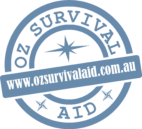The most important aspect of proper hygiene whether at home, work, camping or during emergencies is to prevent yourself and others developing ill health and disease. People have recognised the critical importance of proper hygiene practices for literally thousands of years, and can be considered the foundation of a structured and functioning society. This is more applicable these days, as sickness and disease has the real potential to devastate not only your own personal life, but of all those around you and indeed entire societies.
The Basics of Proper Hygiene
This is such a basic message that so many people just don’t comprehend and implement, that it could be considered bewildering. Many of the common diseases and causes of ill health could be ameliorated or indeed eliminated if basic and simple hygiene procedures were practised. Using basic soap and clean water is all that is required.
Most health authorities recommend washing your hands with soap for a minimum of twenty seconds, which is nothing compared to the potential risks associated with poor hygiene. The basic message is to make contact with all surfaces of your hands. The use of nail brush is extremely effective. And remember to rinse thoroughly to completely remove all germs and contaminants.
Health Risks of Poor Hygiene
During camping and emergencies it may be very difficult if not impossible to access medications if sickness and disease occurs. Therefore prevention is better than the cure. All militaries around the world throughout all history recognise the necessities of proper hygiene practices, as a sick and diseased army is very much an ineffective force. This is why disease and ill health has often been considered a weapon.
Dysentery is considered a very significant threat with all military forces, and one stringently enforced within military operations. Health risks should always be considered whether out in the wilderness on camping and hiking expeditions and also in preparing for emergency situations. Dysentery is an infectious disease, able to be passed onto and contaminate other people, with inflammation and ulceration of the lower bowels, resulting in sometimes often severe diarrhoea that can easily become hemorrhagic.
Haemorrhaging from the bowels, which is basically a profuse discharge of blood, is not a pleasant symptom, and one that will definitely destroy any camping experience. Usually if one person becomes infected, then others will be too. If hiking or faced with an emergency situation, this ailment is definitely one to avoid, as those infected become a liability to others.
And in addition, diarrhoea can easily result in dehydration, compounding the problem even further. Dehydration by itself is debilitating enough. It must always be considered that sick people with dehydration will require the consumption of greater quantities of clean potable water, putting extra pressure on available water supplies.
Plan & Prepare
If the conditions are extremely cold then it may be more comfortable to have heated water on hand, particularly if showing. Water can be heated over the fire in an appropriate receptacle (billy can etc), in a solar shower or black container left in the sun for a period of time, or even a portable gas water heater if so inclined or able.
Consider packing anti-diarrhoea medication in the first aid kit and emergency preparedness kit in case of dysentery and gastroenteritis. Refer to our post on ‘Proper Bush Toilet Procedures’ for further information on proper hygiene procedures and environmental protection. If possible, take extra water in case for these types of emergencies.
Hand sanitisers are beneficial in reducing viral and some bacterial infections, but will not stop the spread of gastroenteritis for example. It has become a common mistake in very recent times with the increased use of hand sanitisers that they will protect us from everything that can cause sickness. However as a result, gastroenteritis has increased within many societies around the world. Hand sanitising liquids are better than nothing though, and due to their high alcohol content are very effective as an accelerant for starting fires.
If extra water is not able to be carried, such as when hiking, and even as a back up for many situations, consider packing hand and bath wipes. These are very handy, light weight, inexpensive and readily available. Just remember to dispose of responsibly and not left to litter the landscape.
Help Protect the Natural Environment
Protecting the natural environment should be every ones concern and is easily implemented. For showering and washing hands, use pure white soap that is not only better for us but is less detrimental for our ecosystems. Or simply use organic and natural products for cleaning ourselves.
And certainly do not wash in our rivers and creeks. For general hand washing consider using a bucket or portable basin and dispose of the water away from water courses. Same with showering and dish-washing, as often soaps and detergents can pollute waterways with unnecessary toxins and nutrients. Always take your rubbish out with your, as officials have closed natural areas to the public because of an excess dumping of rubbish.
Conclusion
Prevention is significantly far better than the cure. Consider the planning process and what potentially can go wrong. Have everything on hand for what can go wrong and have procedures that are readily available and easily implementable. Overall, simply have soap and clean water readily available for everyone to use.






